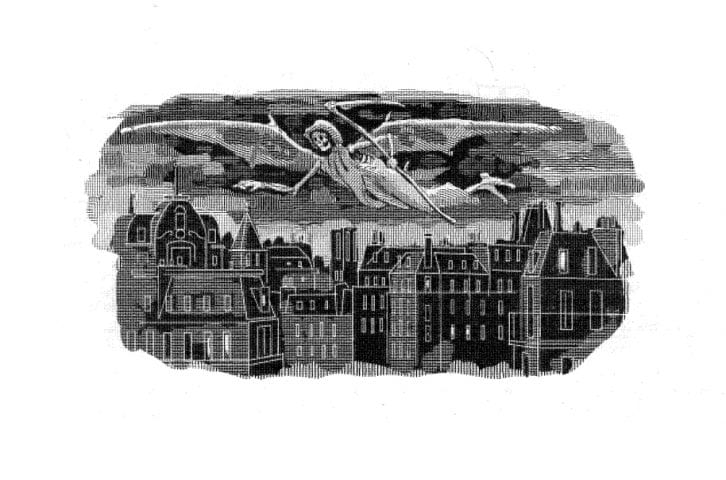The Claremont Review of Books mourns the passing of Leonard W. Levy in late August at the age of 83.
As the Andrew Mellon All-Claremont Professor of the Humanities and a recipient of the Pulitzer Prize, Levy was a towering figure at Claremont Graduate School in the 1970s and 1980s. His small seminars and one-on-one tutorials could be compared to military boot camp: they were painful, demanding, terrifying, exhausting—and something that afterward you would never have wanted to miss. His loud, commanding voice, and his complete mastery of the subject, conveyed an air of authority that was never confused with dogmatism. In a Levy course, you weren't just questioned; you were cross-examined. It was often not a pretty sight, but it made everyone better thinkers, writers, and scholars. (One of his demands was that students never—ever—write a sentence in the passive voice. Upon being shown a passive sentence of his own, he would roar: "Do as I say! Not as I do!")
Although a New Deal liberal, Levy voted for Ronald Reagan in 1980 (though not in 1984). He was friendly to conservative students because he came to see that his very best students were the conservatives who had come to Claremont to study political philosophy, but who recognized that there was much to learn in his rigorous courses on constitutional history.
Levy was a thorough and scrupulous scholar, following wherever the evidence led him. Willmoore Kendall once wrote approvingly that "Professor Levy's mood is not unlike that of a devoted husband reading aloud a private investigator's report on how his errant wife spends her afternoons." Levy shook up the liberal establishment with Legacy of Suppression: Freedom of Speech and Press in Early American History (1960), in which he unearthed in the founding era's thought and practices a restrained understanding of free speech decidedly uncongenial to modern liberals. Levy wrote in the preface to Legacy:
This has been a difficult book to write…. [T]he facts have dictated conclusions that violate my predilections and clash with the accepted versions of history. But, my views as a scholar do not depend on my civic convictions nor on historical convention.
The sequel, Jefferson and Civil Liberties: The Darker Side (1963), brought to light our third president's own abuse of executive power and shook the firmament of Jeffersonian liberalism. Justice Hugo Black objected to both of these books, writing that Legacy of Suppression was "probably one of the most devastating blows that has been delivered against civil liberty in America for a long time."
The New York Times wrote of Levy in its obituary notice:
He was also an active participant in Reagan-era debates over a mode of constitutional interpretation known as originalism, popularized by Attorney General Edwin Meese III and Judge Robert H. Bork, whose nomination to the Supreme Court was defeated in 1987. Originalism looks to the text and original understanding of the Constitution as the only sure guide to its meaning. Professor Levy called that approach a disservice to the grand, open-textured phrases in the Constitution, formulations that he said required fresh interpretation by each new generation. "The framers," he wrote, "had a genius for studied imprecision."
But there was much more to the story than that. He could change his mind in the face of new evidence and arguments (he later revised Legacy of Suppression) sometimes provided to him by his most dogged students. In the aftermath of Original Intent and the Framers' Constitution (1988), his book attacking Bork's view of originalism, Levy revised his arguments to some extent. He became more friendly to the view that constitutional originalism is not a matter of narrow textual exegesis, but of absorbing, as Lincoln showed, the philosophical understanding of the principles of the American Founding, for which Levy had great respect. Partly this change of heart occurred from his frequent interactions with fellow Claremont professor Harry V. Jaffa down the hall; but it is also apparent from Levy's later writings that he had started reading Leo Strauss.
Unlike most modern liberals, Levy's civil libertarianism extended crucially to property rights. He deplored the contemporary Supreme Court's jurisprudence of property rights, and wrote a number of articles on the connection between property and economic liberty that the Institute for Justice would find quite congenial. "Property owned by people," he wrote in 1988, "should be accorded the same constitutional respect that courts give to other civil or human rights so essential to the pursuit of happiness." One of his last books, A License to Steal: The Forfeiture of Property (1996), is a vigorous attack on the often corrupt practice of civil asset forfeiture. He was undoubtedly dismayed at the Supreme Court's Kelo v. City of New London (2005) decision on eminent domain.
Leonard Levy was a historian, not a historicist, and his body of work illustrates the difference between these two approaches to understanding and using the past. The New York Times wrote that "Professor Levy had a gloomy side, and he sometimes despaired over whether his mountain of scholarship had had an impact." This is because much of the legal academy today is decidedly historicist in its approach to constitutional history, viewing historical investigation as being in service of today's ideological agenda. As such, Levy's scrupulous approach was an obstacle, and is not emulated. But his work and example will remain a model for thoughtful scholars so long as honesty still exists in the academy, and his many grateful students will never forget him.



